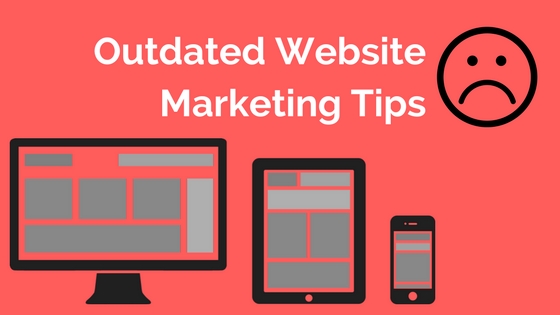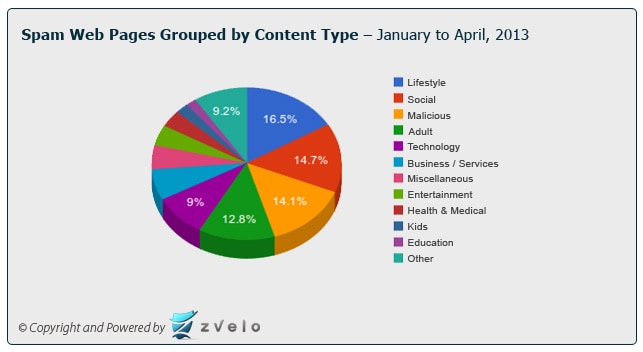Website Marketing Tips That Are Outdated
Are you trying to figure out why your content isn’t gaining the views it did a few years ago? Do you keep trying the same strategy with your content, prose, and headlines, even as you sigh every time someone mentions website marketing tips that you know in your soul you’re already doing?

Turns out, that just like the fashion industry, the online world changes and evolves. Digital publishers and bloggers that were once successful fall behind every day because they fail to stay up to date on what is working with modern audiences.
You see, user behaviors shift, on almost a monthly basis. This is why big dramatic web design projects almost never work out. Below, I’ll share with you some common strategies that simply don’t work like they used to, and offer some sage advice on how to pivot in the right direction.
Before we go too far, you might be asking, “…why tell me what doesn’t work. Can’t you just tell me what does work”? The problem is that we often have blind spots and until we know we’re doing something ineffective we may not want to pivot from things that have worked in the past. If you want some stuff that works now… by all means, try the links below, but I encourage you to keep reading.
- How to SEO audit your own website
- How to get old content to rank higher
- How to write posts that increase pageviews per visit and session duration
Website marketing and SEO are inexorably tied
In the world of search engine optimization — a necessary evil, if you don’t enjoy the weird, smoke-filled world of SEO — some of these changes in website marketing are driven by the guys in the black hats, the spammers, casino sites and other dark edges of the Web.

How? Because as they try to figure out how to get their questionable sites to rank highly, they have to reverse engineer the search algorithm. Digital cold war ensues with Google and other search sites trying to stay one step ahead of the bad guys so that we all enjoy solid, helpful results when we use a search engine.
The other reason website marketing tips change is, well, because things change. Technology improves (HTML 5 is lightyears from HTML 3.2), user expectations for content changes and more and more new Web sites show up online. And, more people now browse on mobile devices than they do desktop computers.

The long and short of it is that your site needs to change, your publishing strategies need to be updated, and you need to jettison all of the old techniques you’re using that just don’t work anymore. The upside will be smarter utilization of your time and more visitors to your content.
#1) Internal linking hacks
One old school technique for raising your page rank was to ensure that the way your pages linked was always keyword rich. You know what I mean — so this article would link to top strategies for creating a great article title — even when that was awkward grammatically and didn’t actually make sense in the sentence (or pertain to this post at all.
That’s no good. Instead, you’ll get more click-throughs — and ultimately better on-site stats — if you link more naturally. And here, of course, is where I properly link to our article on creating good titles.
In the same vein, don’t create multiple pages for similar keywords. Does your roofing blog really need a page for Broomfield Roofing, a page for Louisville Roofing, a page for Gunbarrel Roofing and a page for… well, you get the idea. Consolidate and respect your reader, it’s going to go a lot further in the long run.
Google has flat out told us that internal links do not matter like they used to. Instead focus on how you optimize experiences for your user to improve those crucial user experience metrics that do matter to Google (session duration, pageviews per visit, and bounce rate).
2) A Desktop-Centric Site Marketing Approach
Speaking of things that have changed dramatically in the last decade, have you been breaking down your site visitors by device? We are absolutely in the midst of the rise of mobile and most sites are seeing +50% of their site traffic coming from mobile devices, whether smartphones, tablets or other non-traditional devices. If your site isn’t designed to make that user’s experience fantastic, you’re missing out and will slowly lose traffic month over month as they all find alternative sites that are mobile friendly.

If your site isn’t designed to make that user’s experience fantastic, you’re missing out and will slowly lose traffic month over month as they all find alternative sites that are mobile friendly.
In many cases, publishers still primarily look at desktop and assume that things are great on mobile because they have a responsive website. If you start building your initiatives from a mobile perspective you will be doing yourself a lot of favors. Taking a desktop-centric approach leaves you vulnerable to losing visitors every month.
#3) Paying for Links
If you are still paying an SEO consultant or doing your own link building strategies, believing that getting links from fly-by-night sites that exist purely as link farms it’s time to quit now. Today. Right now. Because that’s a long-since obsoleted strategy and, worse, it can hurt your rankings (that’s a factor in why a lot of sites got hit earlier this year).

Instead, it’s all about social and all successful online publishers are spending much of their website marketing and promotional energy on Facebook, Twitter, Reddit, LinkedIn, Pinterest and other social sites.
Google even has a word for this: the company refers to these as social signals and has rightly acknowledged that the conversation that used to take place in the comments on a blog post are now happening in social. Want to see what’s popular? See what’s being posted and shared on social media. Simple. But if you’re not an active player, you’re hurting your site.
… but be sustainable in your social efforts
Social media is good. Asking for shares, retweets or other engagement on social for your content is not good, however. At best, it comes across needy or ingenuine, but at worst it can be a violation of the terms of service of the big social sites and can get you banned or kicked off entirely if you do it deceptively.
Ultimately, it’s still all about your content. Produce great content, smartly written and with engaging and compelling imagery, then spread the word via social media and other channels to encourage your audience to check it out.
We’ll let you take it from here. What other strategies are outdated?

